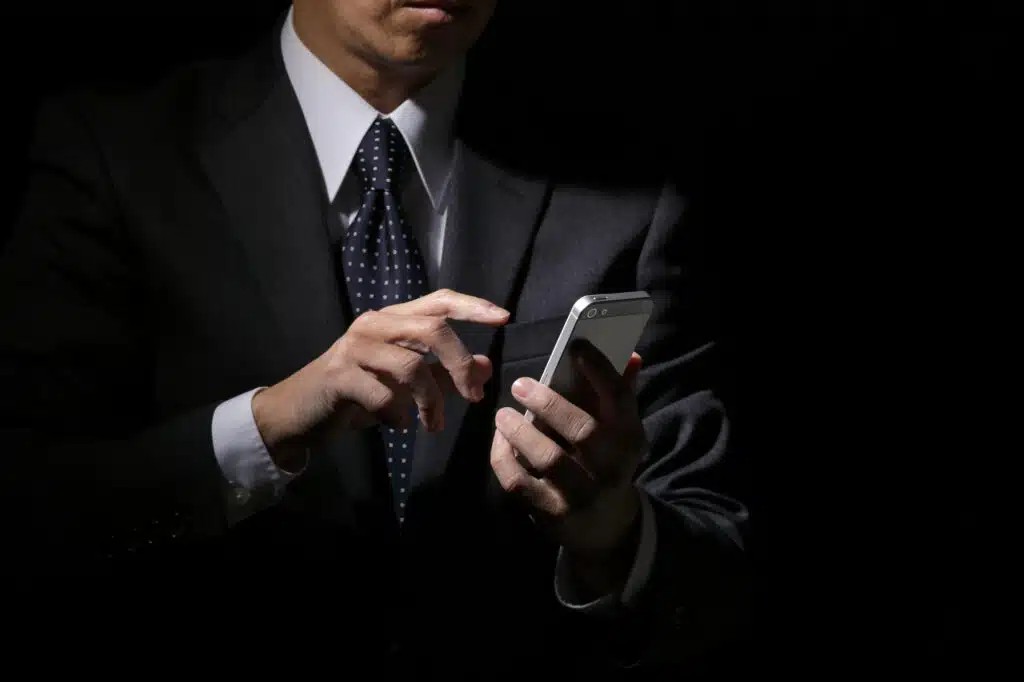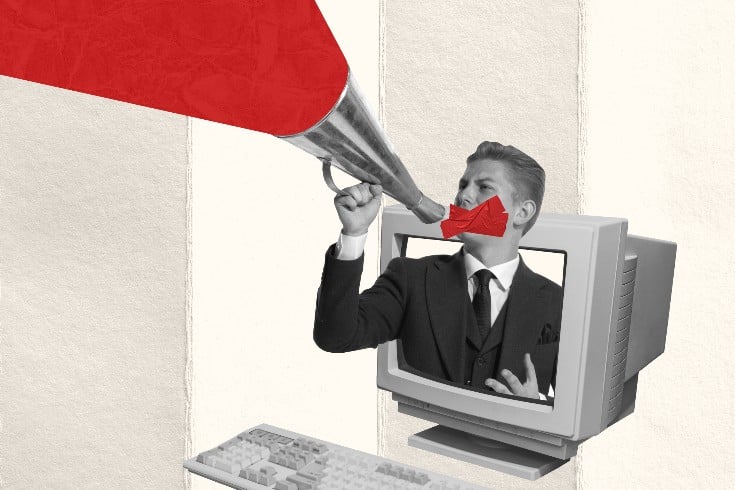What Kind of Defamation Constitutes an Infringement of Honor? Explaining 7 Concrete Examples

With the development and widespread use of social media, anyone can freely express their opinions on the internet. However, this has led to the societal issue of defamation through anonymous message boards and social networking sites or social media (SNS).
When pursuing legal responsibility for such defamation, there are not only methods of questioning liability for torts due to defamation, but also methods of claiming infringement of honor feelings. Even if defamation is not recognized, there are cases where a claim for damages is recognized as an infringement of honor feelings.
In this article, we will specifically explain the differences between defamation and infringement of honor feelings, and the cases where liability for torts due to infringement of honor feelings is recognized.
Social Reputation and Subjective Honor
To distinguish between defamation (infringement of honor) and infringement of honor feelings, it is necessary to understand the difference between the ‘honor’ in defamation and the ‘honor feelings’ in infringement of honor feelings.
The ‘honor’ in defamation is defined in case law as ‘an objective evaluation received from society about a person’s personality, virtue, reputation, credit, and other personal values’ (Supreme Court decision, June 11, 1986, Minshu Vol. 40, No. 4, p. 872).
Therefore, if your evaluation by others (social reputation) is damaged by slander, there is a possibility that an illegal act due to defamation may be recognized.
In contrast, the ‘honor feelings’ in the tort of infringement of honor feelings is defined as ‘a subjective evaluation that a person has about his or her own personal value’ (Second Petty Bench decision, December 18, 1970, Minshu Vol. 24, No. 13, p. 2151).
Therefore, if your self-esteem or pride (subjective honor) is hurt by slander (insult), there is a possibility that an illegal act due to infringement of honor feelings may be recognized. In other words, even if it is not recognized that your social evaluation is lowered by remarks such as ‘idiot’ or ‘fool’, if it can be said that your self-esteem or pride is hurt, there is room for relief by claiming infringement of honor feelings.
Cases Where Torts Due to Defamation of Honor are Recognized

“Honor feelings” refer to subjective honor, such as self-esteem and pride, as we have already explained. Given that honor feelings are in the realm of these subjective emotions, it may be inevitable to hurt someone’s self-esteem to some extent when commenting on them. If any damage to honor feelings could lead to tort liability, it would inhibit free discussion about others.
Therefore, to avoid such harm, it is necessary for tort liability due to defamation of honor to be recognized that it is “an insult that exceeds the limits acceptable in societal norms” (Supreme Court Third Petty Bench, April 13, 2010 (Heisei 22), Minshu Vol. 64, No. 3, p. 758).
So, what circumstances are considered when it is recognized as “an insult that exceeds the limits acceptable in societal norms”? Below, based on the trends in actual court cases, we will look at the circumstances considered when recognizing tort liability and when not recognizing it.
Circumstances Considered When Recognizing Tort Liability
For example, when expressions that deny the existence of the victim, such as “I wish you were dead,” are used, and the insult of the wording itself is strong, it tends to be judged as an insult that exceeds the limits acceptable in societal norms (Tokyo District Court, November 7, 2019 (Reiwa 1)).
In addition to the insult of the wording itself, if expressions defaming others are persistently repeated in the same post, there is a tendency to recognize tort liability (Tokyo District Court, September 25, 2020 (Reiwa 2)).
Furthermore, if general readers can understand that the post in question is directed at the victim when they come across it (when identifiability is recognized), considering the possibility that an insulting post against the victim may be conveyed to an unspecified number of people, there is a tendency to recognize tort liability (Fukuoka District Court, September 26, 2019 (Reiwa 1)).
Circumstances Considered When Not Recognizing Tort Liability
If insulting words are used only once, or if they are merely opinions or impressions without any particular basis, they tend not to be judged as insults that exceed the limits acceptable in societal norms (Supreme Court Third Petty Bench, April 13, 2010 (Heisei 22), Minshu Vol. 64, No. 3, p. 758).
Also, if the expression merely points out “illegality” and lacks specificity or is unclear in meaning, there is a tendency not to recognize tort liability (Tokyo District Court, March 12, 2020 (Reiwa 2)).
7 Case Studies on Judgments Regarding Defamation and Infringement of Honor

So, what kind of considerations are made in the judgments? Let’s look at how individual posts were judged in an actual court case (Tokyo District Court, January 15, Heisei 31 (2019)).
Case Overview
The plaintiff had been publishing articles on beauty, health, dating, love, and marriage activities on her blog. The defendant identified the plaintiff’s real name from the facial photos posted on this blog and repeatedly defamed her in a thread on the Internet bulletin board “5channel”, mentioning her real name. Therefore, the plaintiff claimed damages for seven of these posts.
Below, we will look in detail at how each post was judged.
Since the posts were made anonymously, the plaintiff identified the poster’s name and address through the disclosure of sender information, and then filed a lawsuit for damages against the poster. For information on requests for disclosure of sender information, please refer to the following articles.
Related article: What is a request for disclosure of sender information? A lawyer explains how to do it and what to watch out for[ja]
Related article: What is a request for disclosure of sender information to identify the person who posted?[ja]
Post saying “Ridiculous”
First, the post that doubted whether the plaintiff’s blog article was a joke due to its ridiculousness was considered to be merely expressing the defendant’s impression of the blog, and was not recognized as an insult exceeding the socially acceptable limit.
On the other hand, the post calling the plaintiff a “stupid woman” was recognized as an insult exceeding the socially acceptable limit, as it was a post criticizing the plaintiff’s personality itself and it was possible to identify that it was referring to the plaintiff.
Post saying “Ugly & Disgusting”
The posts calling the plaintiff “ugly” and describing the plaintiff and her boyfriend as “disgusting” were recognized as insults exceeding the socially acceptable limit, as the expression “ugly” means “ugly in appearance” and “disgusting” suggests “feeling disgust”.
Post calling the love interest “ugly”
The post calling the plaintiff’s love interest a “short, poor, ugly young man” was not recognized as an insult exceeding the socially acceptable limit, as it was not a defamation directed at the plaintiff herself, and it cannot be said that dating such a person generally affects a person’s personal evaluation.
Also, the post calling the plaintiff’s behavior of being infatuated with such a partner “miserable” was not recognized as an insult exceeding the socially acceptable limit, as it was “hard to say it’s a moderate expression, but overall, it does not go beyond expressing an opinion about the plaintiff’s behavior”.
Post saying “Ugly” 1
The post calling the plaintiff “ugly” even in her retouched photos and using the word “ugly”, which is synonymous with “ugly”, four times, and using the “w” mark, which means “laughter”, to insult the plaintiff, was recognized as an insult exceeding the socially acceptable limit, as it was possible to identify that it was referring to the plaintiff.
Post saying “Ugly” 2
The post calling the plaintiff “ugly” and saying “it’s miserable… really. It seems hard every day” was recognized as an insult exceeding the socially acceptable limit, just like the other posts saying “ugly”.
On the other hand, the part of the post that called her “miserable” was not recognized as an insult exceeding the socially acceptable limit, as it was “merely expressing the defendant’s speculation, not specifically defaming the plaintiff’s appearance, etc.”
Post saying “Loose”
The posts saying “letting a short, ugly guy who only wants to have sex into her house” and “if she doesn’t fix her loose behavior, there’s no future for the ugly” were recognized as insults exceeding the socially acceptable limit, as the word “loose” can be interpreted in this context as “meaning to have a sexual relationship for the sole purpose”, and this post indicates that “the plaintiff is a person who has sexual relations lightly and is ugly”.
Post saying her face contour is like a “potato”
The post calling the plaintiff’s face contour “like a potato” and saying “even if the parts of her face are big, if the contour is not well-shaped, she looks ugly anyway” was recognized as an insult exceeding the socially acceptable limit, as it mentioned specific features of her appearance and called her “ugly”.
Summary of Judgment Cases
In this court case, when judging whether it can be said to be an “insult exceeding the socially acceptable limit”, the degree of maliciousness and specificity of the post wording, frequency, etc. are examined in detail. And it is clear that the way these elements are considered is consistent with the trends of other court cases already introduced.
By understanding the trends in judgments on specific posts in this way, you can grasp what elements to focus on in advance in order to recognize tort liability for infringement of honor.
Related article: What is infringement of honor? How to deal with posts saying “stupid” or “ugly”[ja]
Legal Perspective on Mocking Celebrities for Their Looks
In variety shows and similar programs, celebrities are sometimes mocked for their looks.
Typically, derogatory remarks such as calling someone “ugly” could be considered an insult that exceeds the socially acceptable limit.
However, if the person being called “ugly” has explicitly or implicitly accepted this, such circumstances may be taken into account when determining whether the insult exceeds the socially acceptable limit, potentially negating liability for wrongful conduct.
Therefore, whether a celebrity has given prior consent to being mocked for their looks on a show or similar program could be a crucial factor in determining liability for wrongful conduct.
About Damages Due to Defamation of Honor

In cases of defamation of honor, it is possible to claim damages such as consolation money (for emotional distress), attorney fees, and costs incurred in disclosing the sender’s information.
Among these, the amount of consolation money is considered based on various factors such as the number of posts, the content of the posts, whether the posts were viewed by an unspecified number of people, and whether there was an intention to insult.
For example, in the court case introduced earlier (Tokyo District Court, January 15, Heisei 31 (2019)), considering factors such as multiple posts, posts on an internet bulletin board accessible to anyone, and posts containing insults about the plaintiff’s appearance such as “ugly”, the consolation money was set at 200,000 yen.
Also, in the Tokyo District Court, March 4, Reiwa 4 (2022), considering factors such as the malicious content of the post, the clear intention to unilaterally insult the plaintiff, the defendant’s lack of apology to the plaintiff, and the fact that the defamation of honor was limited to a short sentence without specifying concrete facts, the consolation money was set at 80,000 yen.
Thus, while the amount of consolation money is calculated considering specific elements for each individual case, it is not uncommon for the plaintiff to be unsatisfied with the amount. Therefore, it is important to make persuasive arguments and provide evidence about the circumstances that form the basis for emotional distress at the stage of litigation.
For information on attorney fees and costs incurred in disclosing sender information, please refer to the following article.
Related Article: What is the Market Price and Calculation Method for Damage Claims Against Defamation Offenders?[ja]
Summary: Consult a Lawyer for Online Defamation
In this article, we explained that when pursuing legal responsibility for defamation on the internet, it is beneficial to consider not only defamation but also tort liability due to infringement of honor.
When pursuing tort liability due to infringement of honor, it is important to determine whether the defamation in question “exceeds the limits acceptable in society”. As we have already explained, when considering whether it “exceeds the limits acceptable in society”, not only the maliciousness of the wording but also the specificity of the content, frequency, and various other factors are involved.
Furthermore, it is necessary to thoroughly investigate what meaning each of these elements holds in the examination, in light of court precedents, and consulting with a specialist lawyer can be helpful. If you are having trouble with posts on the internet, please do not hesitate to consult a specialist lawyer.
Introduction to Our Firm’s Measures
Monolith Law Office is a legal office with high expertise in both IT, particularly the internet, and law. In recent years, overlooking information related to reputational damage and slander spread on the internet can lead to serious harm. Our firm provides solutions for managing reputational damage and online crises. Details are provided in the article below.
Areas of practice at Monolith Law Office: Reputational Damage Management[ja]
Category: Internet





















